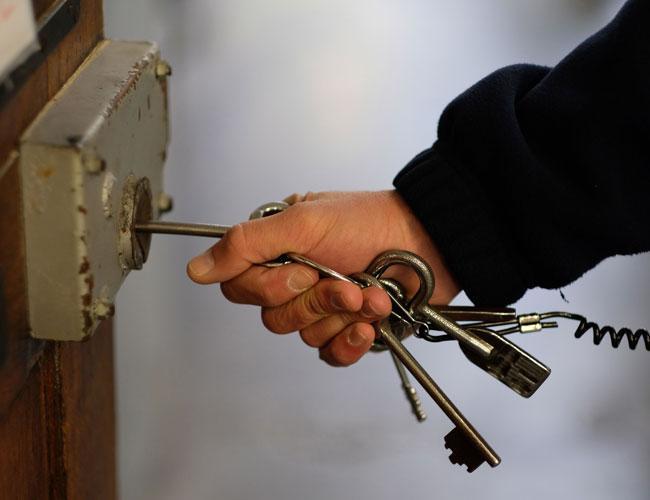
The Turkish Constitutional Court has said in a recent ruling that 4.25 square meters of living space per inmate in prison, including common living areas, is “sufficient.”
The decision concerns a former judge who was jailed following the July 15, 2016 coup attempt on charges of being a member of the Gülen network, which the authorities refer to as the Fethullahist Terrorist Organization (FETÖ).
Mehmet Hani Baki, jailed in a prison in the southern province of Osmaniye, made a complaint to the judge of execution against the prison on the grounds that the ward he stayed in had a capacity of 16 but was housing 25 inmates.
Once Baki’s demand for the number of inmates in his ward to be decreased was overturned, this time the FETÖ suspect applied to the Osmaniye Second Heavy Penalty Court. Baki’s demand was again overturned by the court, which led him to take his case to the Constitutional Court.
In a statement sent to the top court, the prison administration admitted there were only 16 bunk beds in the ward, but the remaining nine people were provided with floor beds. It also said each prisoner was left with 4.25 square meters of personal space, including common living areas.
The Second Section of the Constitutional Court rejected Baki’s demand for less crowded wards and said the situation was a result of the imprisonment of thousands of people following the coup attempt in 2016.
“As there are 4.25 square meters left per person, including common living areas such as the kitchen and prison yard, a sufficient standard has been concluded. It cannot be said occasionally sleeping on the allocated floor bed and instead of a bunk bed causes heavy physical and psychological burden on the applicant,” the ruling said.
The Second Section of the Constitutional Court’s President Engin Yıldırım, however, objected against the ruling.
“Overcrowding prison wards can understandably be necessary for a period of time, but in the case of this applicant, it is unacceptable for prisoners to be kept in such an environment for a long period, which exceeds a year. Prisoners, including the applicant himself, having to take turns sleeping in front of the toilet for over a year conflicts with human dignity,” he said.